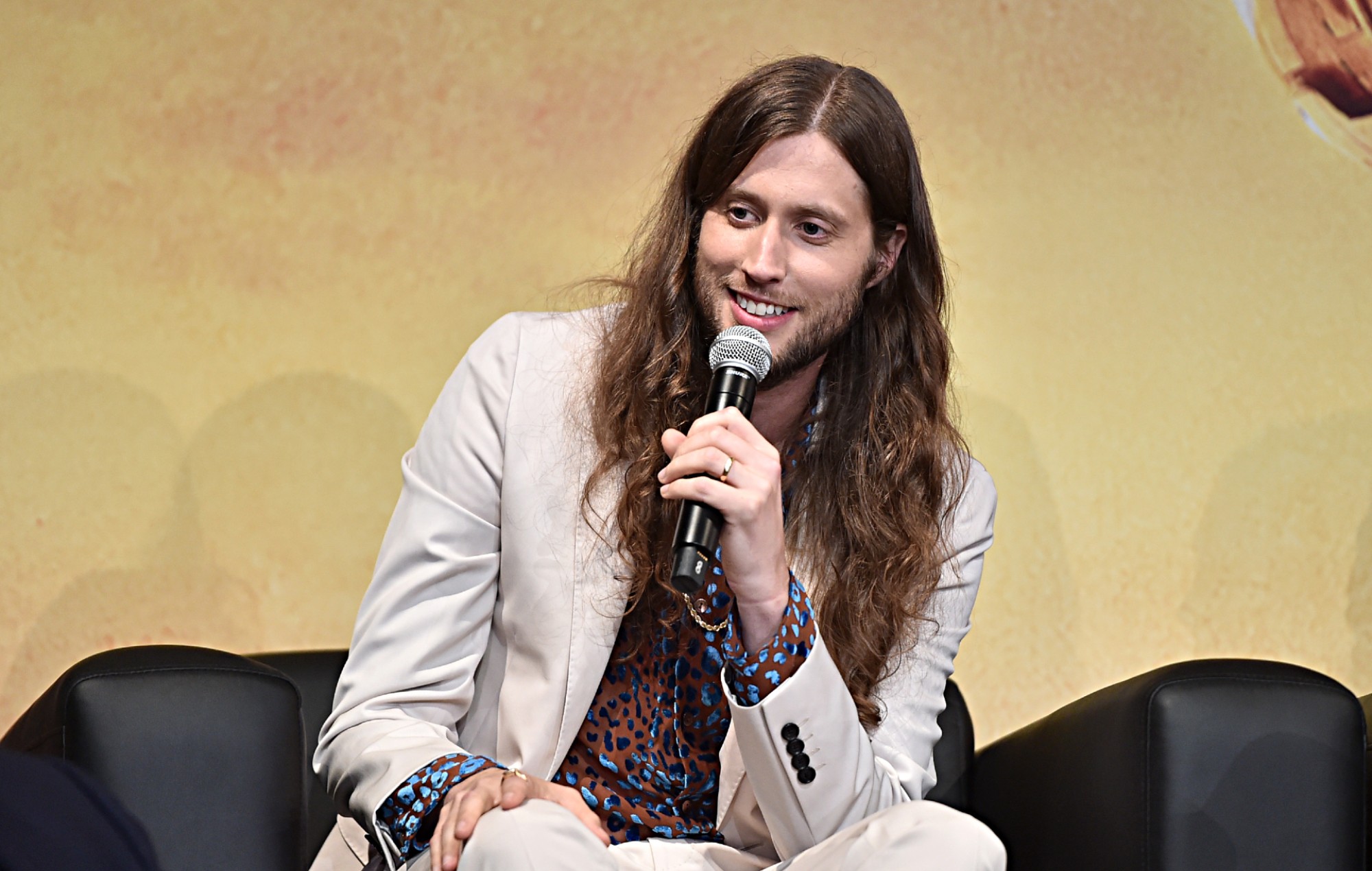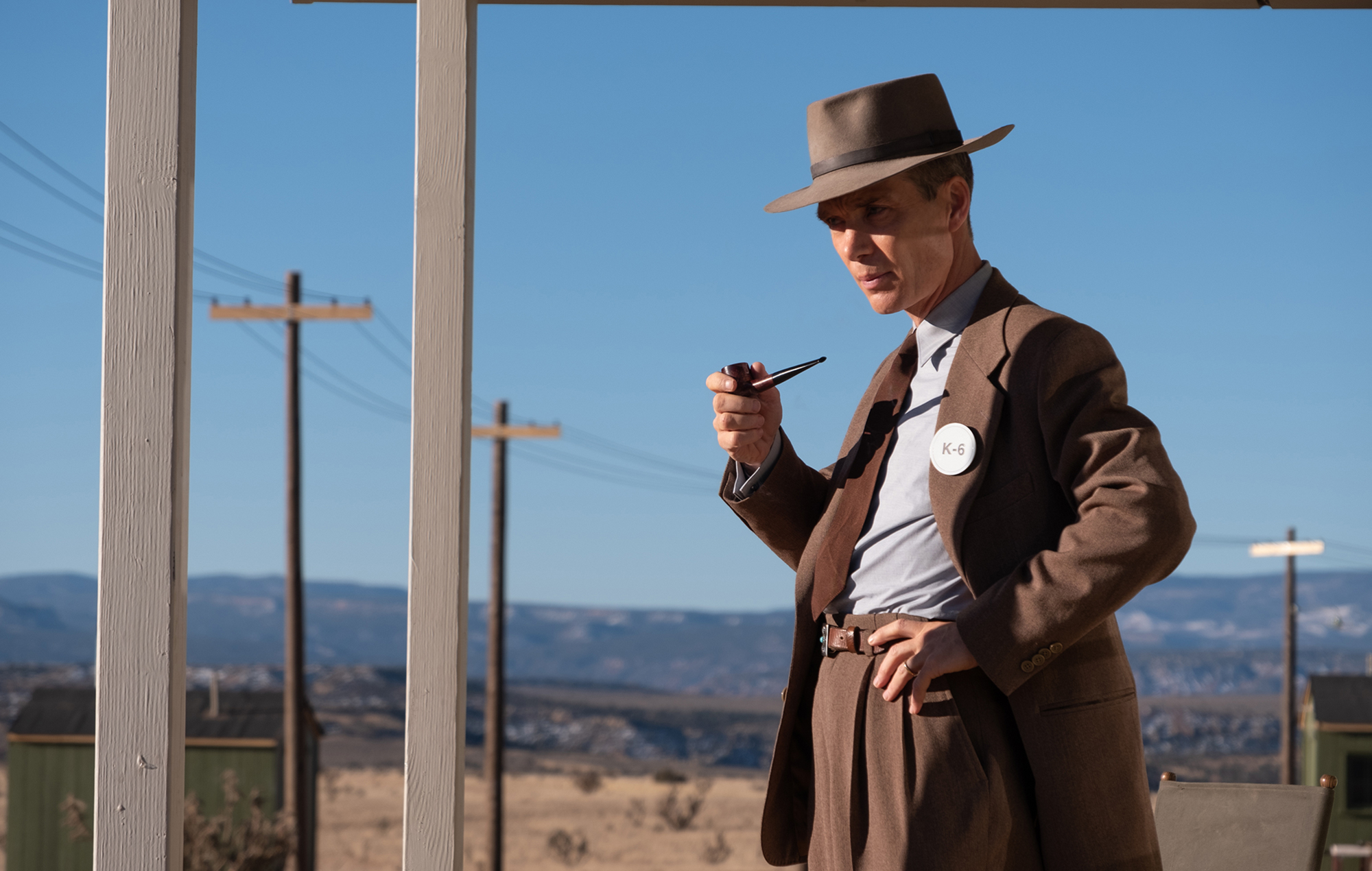“It was unplayable”: ‘Oppenheimer’ composer Ludwig Göransson wrote Nolan’s toughest score yet
Let’s be honest, if Christopher Nolan movies didn’t have music they’d be a bit rubbish. Can you imagine Batman without the dark and moody strings? What about Hans Zimmer’s ticking clock motif in Dunkirk? No mind-boggling reversed score for Tenet? Each soundtrack supports the action on-screen; building and relaxing tension like a cinematic puppet master.
Oppenheimer, composed by Swedish maestro Ludwig Göransson, is the same. Following the real-life story of the American physics genius who helped invent the atom bomb, Nolan’s first biopic is (ironically) less explosive than his other movies. It’s more dialogue-heavy and features fewer blockbuster stunts. That doesn’t mean it’s boring though. The race against the Nazis to perfect humanity’s first city-levelling weapon makes for a thrilling watch. And Göransson’s epic work – all eery violin trills followed by thundering drum rolls – is a big part of that. We jumped on Zoom with the Scandi film wizard, who also wrote soundtracks for Tenet and Black Panther, to hear how he did it.
Christopher Nolan called out of the blue
Oppenheimer’s director is quite a secretive man, so his collaborators aren’t clued in until they need to be. On their second project together, Göransson says the phone rang on a random day with a request that he make himself available tomorrow to read Nolan’s new script. He was told nothing more, though Göransson says that was kind of nice. “One of the joys about working with him on a new thing is that you have zero impressions in your mind.”
After that, it got quite intense quite quickly. “I had about two months with him before he went off to shoot the movie,” says Göransson. “That’s two months where I write 10 minutes of music every week, and we met once a week where I presented it to him… Then we listened to each piece about 56 times and talked about what really grabbed our attention.”

He gave Nolan 23 hours of music to listen to
In February 2022, cameras rolled on Oppenheimer. So the regular meetings had to stop because Nolan was unavailable on set. Instead, Göransson loaded up his boss’s digital devices with “23 hours of music” to make sure he was “listening all the time”. On breaks, Nolan didn’t relax with a well-earned cup of tea, instead he sifted through endless versions of different instrumental themes to find the version he liked best. Later, when the first rough cuts of the movie came through, Göransson was able to start fine-tuning his ideas to fit actual footage.
Cillian Murphy’s performance changed the score
The Peaky Blinders star is in nearly every frame of Oppenheimer, so a lot of the music matches whatever mood he’s in at the time. The way Murphy played him was crucial to how Göransson wanted to write, whether stressed-out as the camera zooms in on his piercing blue eyes and furrowed brow or emotionally broken by the realisation that he’s created an unstoppable killing machine. Göransson calls Murphy’s performance “almost inhuman”, and describes how difficult it was to come up with a recurring theme that matched his nuanced portrayal. Eventually, though, he nailed it.
“One of the early ideas that Chris had was the use of the violin,” he explains. “Oppenheimer was a genius with a lot of complex layers underneath. With a solo violin, you can play the most beautiful, romantic vibrato. But then if you press down the bow heavily and change the speed, you can make something horrific, manic or neurotic in a split second… Chris and I were constantly talking about going in and out of different emotions.”

Göransson’s favourite sequence was tough to pull off
Even more tricky than Oppenheimer’s theme was a montage near the start of the movie. In that scene, Kenneth Branagh’s older Danish scientist Niels Bohr lectures a young Oppenheimer at university. Comparing algebra to music, Bohr asks if Oppenheimer can hear the equations on the page like you would a symphony. Cue a cleverly cut together procession of images where this idea is illustrated: microscopic dust particles and fluorescent lights buzz across screen before resting on a final shot of spinning atoms. It took Göransson a while to come up with something he was happy with.
“The tempo [of that piece] changes every four bars… and it gets faster and faster,” he says. “By the end, it’s three times faster than when it started. At first I thought it was unplayable.” But play it, someone did. In a complete, unbroken recording that proved immensely challenging to achieve, requiring numerous iterations and dedicated efforts to perfect, Göransson’s team of world-leading musicians pulled off the score’s toughest section. “We spent three days on that one sequence. It was just astounding to see how it grew.”
He adds: “I feel very lucky in my career so far because every project I do is completely different from the other… I’m always learning new things.”
‘Oppenheimer’ is in cinemas now
